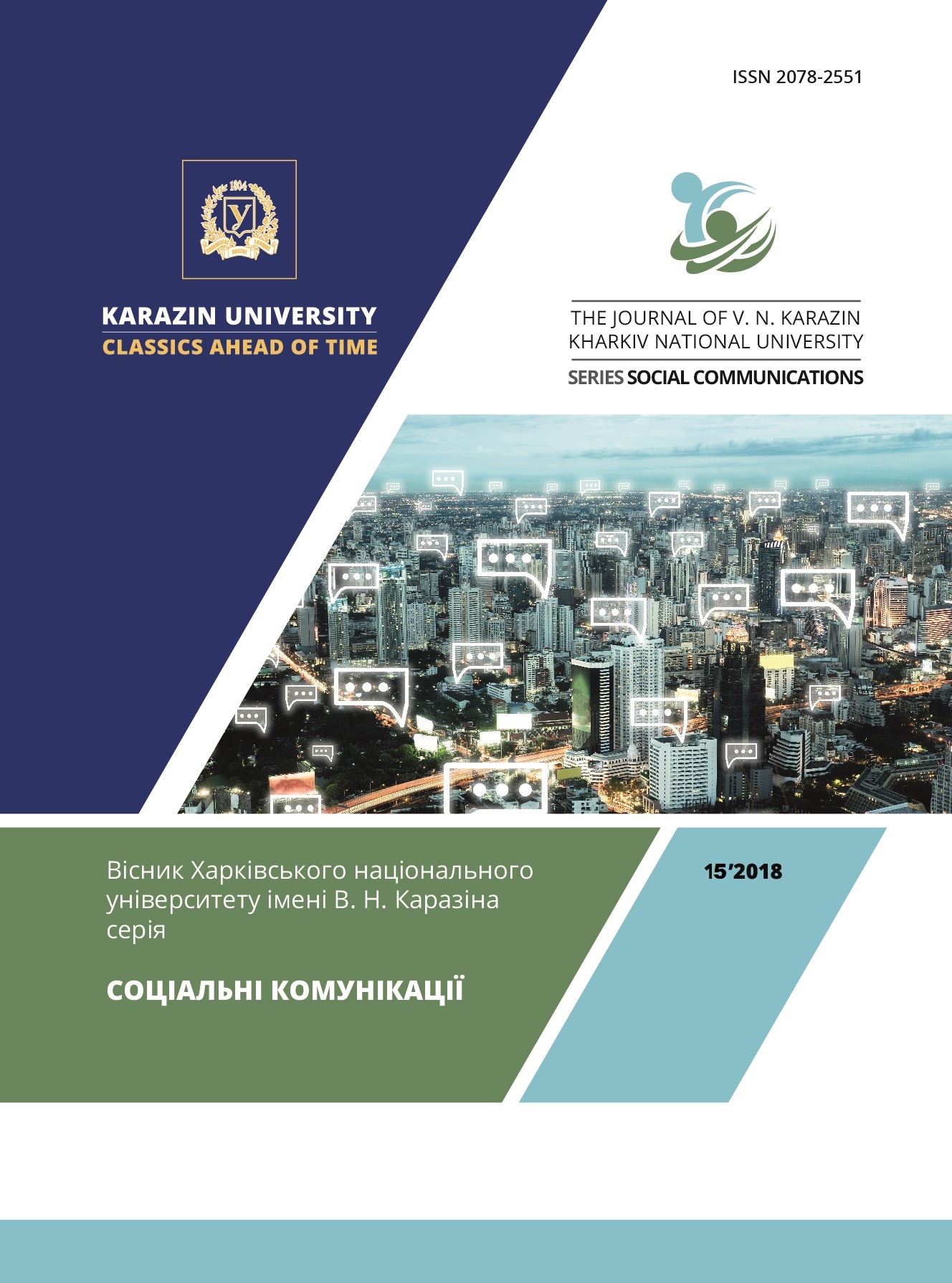Media safety problems in the modern world: Western experience and tasks for the Ukrainian society (based on materials of monitoring commissions)
Abstract
The paper is devoted to the analysis of some strategic reports on information security in the aspect of opposition to manipulative technologies distributed by the media. In particular, we took for analysis «Putin's assymetric assault on democracy in Russia and Europe: implications for U.S. national security» (prepared for the US Senate Foreign Relations Committee, Washington, January 10, 2018), «A multi-dimensional approach to disinformation» (prepared for the European Commission by a group of experts on fakes and online misinformation, Brussels, March 2018), «Information manipulation: a challenge for our democracies» (prepared by the Planning Policy Division of the Ministry of Europe and Foreign Affairs and the Institute for Strategic Studies of the Ministry of Military Forces, Paris, August 2018), finally «Disinformation and "fake news": Final report» (commissioned by the Chamber of Representatives, by the Committee on Digital Policy, Culture, Media and Sport, London, February 18, 2019). The objective of our paper was to highlight the main conceptual and strategic narratives that are distributed in the information space as the main ones in the formation of policies to counter information threats, clarify the concepts of «fake», «distortion», and «disinformation» that are fundamental for media security measures. A special place in these reports is also devoted to the topic of the Ukrainian hybrid confrontation; in particular, we are interested in the conclusions regarding the effectiveness and legitimacy of the countermeasures used by the Ukrainian governing structures.




